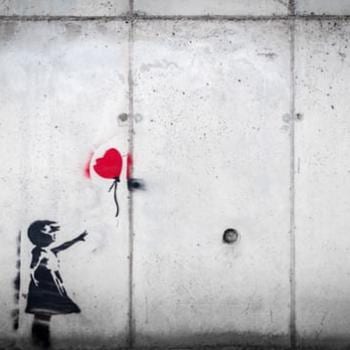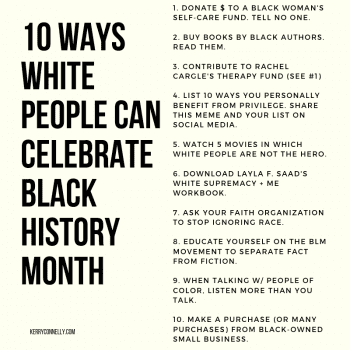One of the strange things that happens when you go to seminary is that God dies right in front of your eyes.
It’s a not a one-time event nor is it a slow, painful death. Rather, it is a long series of catastrophes, gory massacres that seem to happen over and over again as each embedded idea is dug up from its grave, examined mercilessly, then either cast on the fire or set aside for further inspection.
I wrote this for today’s issue of The Banquet, a weekly email I send out:
One of the things that’s most surprising about my seminary journey is the way my faith is being deconstructed. To be honest, sometimes it feels as if God is dying, and perhaps this is true. What I mean is this: old, tired ways of thinking about God, and even more important, the boundaries we as humans love to put around God, are crashing down around me. I am more and more convinced that the desire to be right is what’s killing us all, and most of all, it’s killing God.
A dying God seems at first to be a disappointing God — a God who is unworthy of praise, of worship, of even pondering. Let’s just leave this faith thing behind, and get on with it. We’ve a life to live, after all, and faith doesn’t always make for an easy life. Faith calls us to something beyond ourselves, and this gets messy.
A deconstructed faith, however, is a faith that has been deeply cared for. A faith ignored is not the same thing; a faith abandoned isn’t, either. But a deconstructed faith — now that’s a faith that’s been tenderly turned over in the palm of your hand. It’s been rubbed and polished to a shine. It’s been examined carefully for kinks and dents and broken pieces. A deconstructed faith is a faith deeply cared for.
I believe this to be true, but what’s also true is I hate cleaning. I’m horrible at dusting things off. I prefer avoidance; I prefer burying my head in the proverbial sand; I prefer to pretend everything is fine. This is, perhaps, the greatest gift of my family’s addicted and dysfunctional patterns: smile and nod boys. The world may be crashing down around you, but smile and nod and pretend everything is fine.
I suck at is being inauthentic. That sounds as if I am trying to make use of a buzz word, and a tired one at that. But you know us Christians. We’re slow to to party — if we ever actually show up at all.
But it’s true. Not being myself is exhausting, and why I tend to get in trouble in communities. Among the believers I am a doubter; among the doubters, I am a believer. I walk among the grey-themed graveyard where God’s tomb is gaping, wide and hungry. I can’t decide if it’s a funeral or a resurrection I’m waiting for.
It started with church.
It’s no secret I’m a critic. It’s been more than a year since I’ve been to a service. Next year, I have to do supervised field ministry and the thought gives me a panic attack like the one I almost had yesterday when I felt boxed in on the plane.
I chose a window seat because I like to lean my head against the wall. (I like to have sturdy things to lean on, and rarely do.) The woman next to me had her tray down, and the man in front of her decisively leaned his seat all the way back, boxing me in to that coffin-sized window seat like a wanna-be corpse. When the man directly in front of me began to lean his seat back, my breath suddenly stopped coming.
I had to think about it, force my lungs to open and talk myself down. It finally did occur to me to pray — it usually takes me a moment or two to remember — and the man in front of me leaned forward, and stayed that way for the rest of the flight. My breath, regularly rhythmic again, gave thanks.
Tiny miracles that only matter to me still matter.
But that’s how church had started to make me feel — like that boxed in window seat. What is supposed to be life giving was instead death-dealing. What was supposed to be something I could lean on and trust became unsafe and untrustworthy. Whether being told I could not write about my support for LGBTQ people, or how I was kept in my cubicle-sized place, or being told if I did not like it there I should leave, or the way people tried to talk me out of my feminism with well-formed arguments, or when the people there posted that if you voted for Hillary you are going to hell…all the things. Aaalll the things that helped me realize I didn’t belong, and my welcome was maybe only a facade, or a way to to rearrange my world view when I maybe wasn’t looking.
And leaving was a grey-themed thing, too, because it wasn’t for a lack of love or grace. Grace is a verb, after all. It is an acting out, and grace the verb had infused life at church as often as not. Grace was (is) a thing in which I both participate and require, daily. The leaving was not for a lack of love or grace.
The leaving was for the mental gymnastics I had to do in order to stay in a world in which I could not doubt out loud, or question, or say that something was horrific when it was. When I did these things, I was shushed, eyes rolled behind my back, conversations in back rooms made accusations about my intent. I was not known at church. And this is the very point — my heart was not known in the very place my heart should be able to be vulnerable. Instead I got the death-stares normally reserved for the mothers with the crying babies who had the nerve to think they’d be welcome to stay and listen to the service. You haven’t withstood a death stare until you stand under those burning occuli, let me tell you.
Next, it was the Bible. Not that I don’t love that crazy-ass book. I do. I adore it. I also throw it across the room with regularity. When you study it, (Really study it. I’m not talking about a LifeWay Bible study slickly marketed to women — no offense to Beth Moore & Priscilla Shirer) you learn how much beauty has been kept from us, and also how much of what we know about is nothing more than a social construct.
The Bible is a multi-voiced narrative of a certain group of people’s experience with God. There is so much to question in there — not just to deconstruct it (and it’s worth noting that deconstruction is not the same as destruction) but also to discover it. Translations and all the things you thought you knew just simply aren’t true. Or they are true, but not for all time, everywhere. Or they are true, and they are fucking horrible, and we should not aspire to them.
All of that is in the Bible, and it makes it worth a second (millionth) look.
And I notice that there is a narrative arch to the Bible that matches my own: a people with the wrong idea of God create all sorts of stories and weird rituals about God, then beat other people over the head with it, and all God ever wanted was our focus. Our love. Our attention to the sacred and holy — the baby’s hands; the orphan’s full stomach, the slave set free in dignity. So then then something happens — a huge disruption, a holy Uber if you will. Jesus comes on the scene and he is more God than any of us could ever understand. He comes and he does this crazy stuff and then tells us we will do even crazier stuff than that. It makes you wonder what this Son of Humans was really trying to teach us. And we whacked him for it, because we like our tribes and our rituals; our religious leaders make us feel safe. Pray for us, pastor, surely your prayers count double.
We killed Jesus as brutally as my faith is being crucified now on a tree called every belief I ever held.
Still, there is much to hold on to. Jesus is beautiful — radically beautiful. There is too much craziness in there to not also be truth. But I am also coming to realize that as much as I am fascinated by the historical Jesus (I’m actually sort of obsessed) the historicity of him doesn’t matter the less I need to be right.
I’m learning that something doesn’t need to be true for it to be truth.
I feel no need to defend my stance or prove my point by quoting scripture. I know that often, that’s what people want from me, down there in the comment section. “Silly girl!” I’ve been told, because that’s always endearing and not condescending at all. “You didn’t prove your point! You didn’t quote scripture! You didn’t lay out well-planned argument!”
But that’s not the point of this journey at all. Not at all. If you want theological debate, come to one of my classes. Or go find your own. If you’re up for some spiritual journeying with me, if you’re up for going searching for Jesus, and wading through Lamentations, and deconstructing your faith with me, doubters welcome. Believers welcome, too. I’ll polish mine if you polish yours.
Meanwhile, I am grieving an old faith that has left me, the way the green of summer leaves us in the fall — with a vibrancy of hope for the future, and the slight scent of earthy decay underneath. I am holding on to the beautiful things, like Jesus. And I’m letting go of having to be right about any of it — even to myself. I am open to the mystical — the beautiful mystery of who Jesus is, and what that means. And perhaps I will pour myself into Lamentations like melted butter over sacrificial meat, and perhaps the aroma will lead me somewhere I am meant to be.
And I am looking forward to spring.












